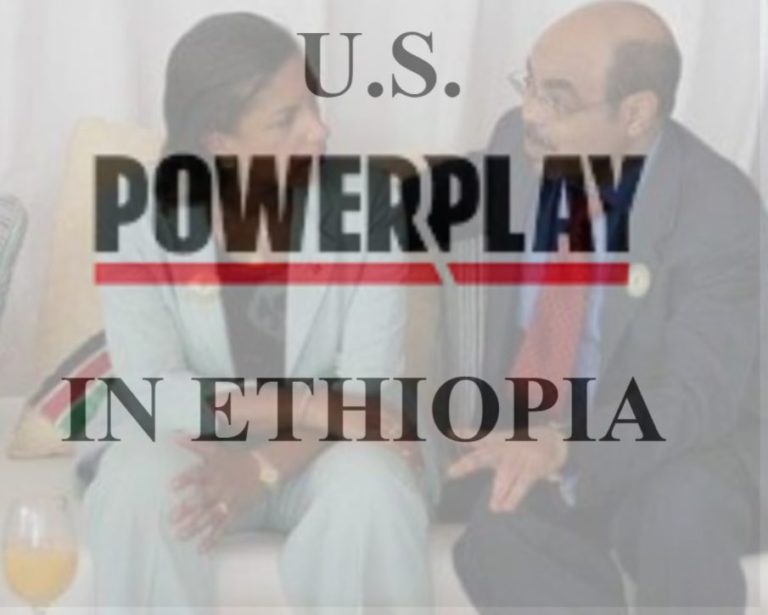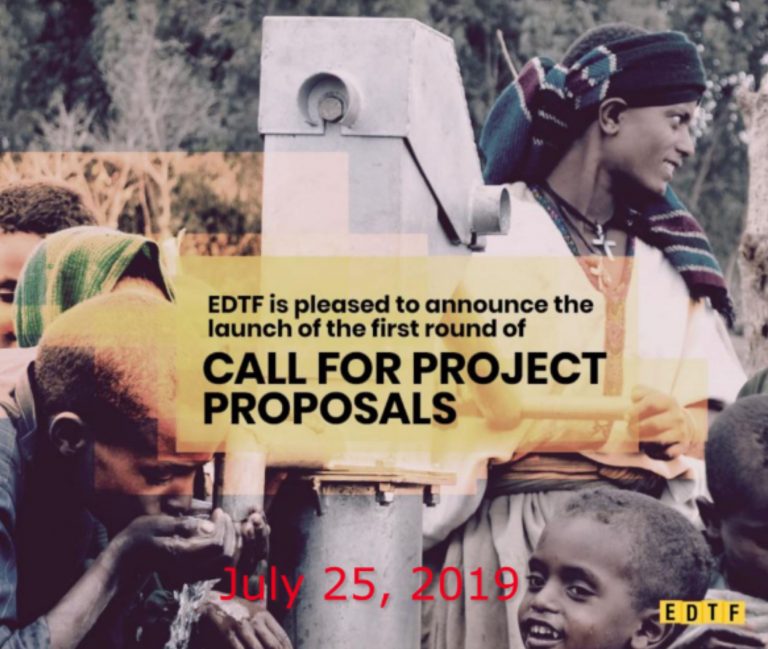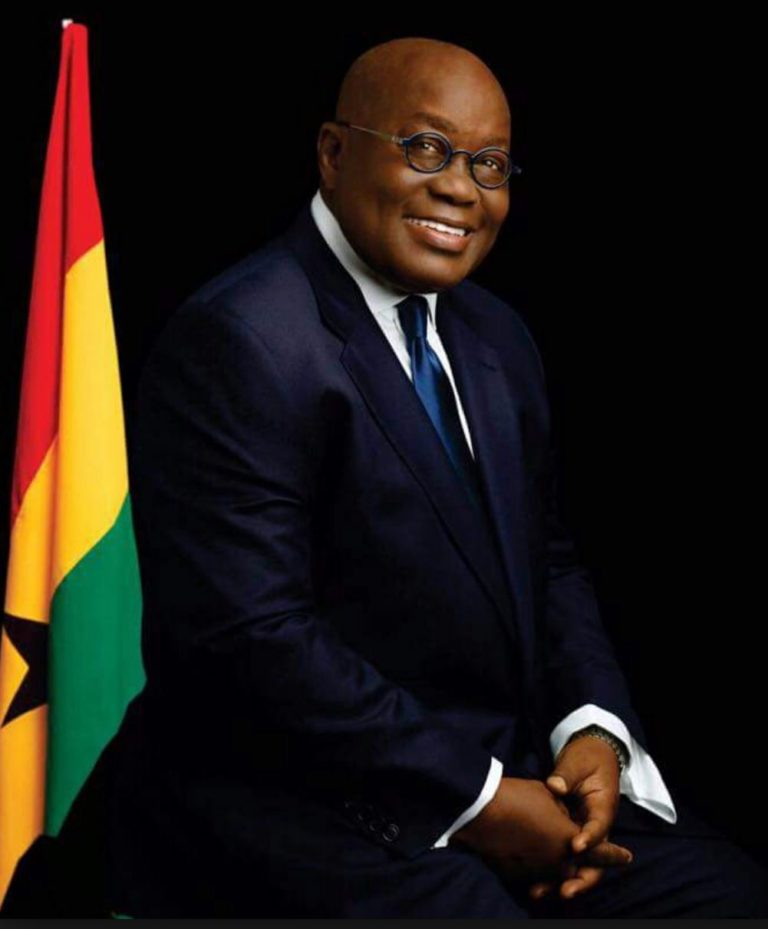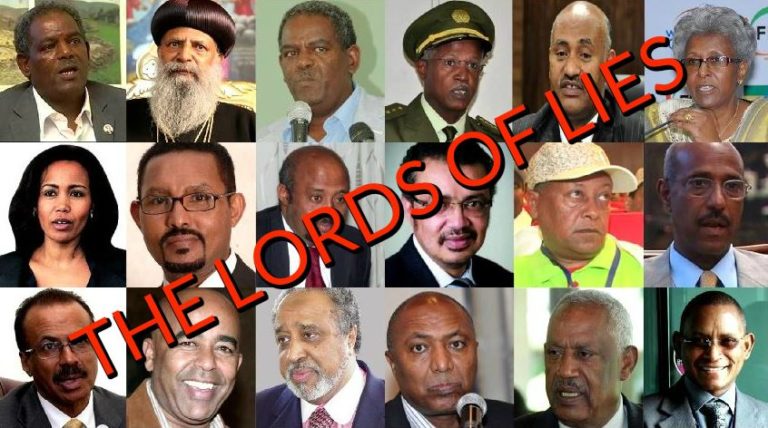Seattle Rising! Seattle Shining!

(full text of Prof. Al Mariam’s speech in Seattle, WA on January 28, 2007 )
Good afternoon Friends, Ladies and Gentlemen: Welcome to this event honoring special heroes in the struggle for human rights in Ethiopia. Before I introduce our guest speakers today, I would like to ask you to join me in a moment of silent meditation and prayer in remembrance of : 193 Ethiopian children, men and women murdered because they committed the crime of exercising their human right to petition for grievances by vocally protesting the theft of an election, the thousands of other Ethiopians who were maimed, who lost their limbs, became paralyzed or otherwise suffered great bodily harm for going out into the streets to stop a daylight robbery of an election, and the defiant and heroic leaders of Kinijit, the human rights defenders and civic leaders who languish in jails and prisons today in Ethiopia, and the many thousands of victims of torture and human rights abuses. Thank you. Before I introduce our guest speakers, I would like to thank certain individuals and organizations for sponsoring this event in Seattle today. First and foremost, I would like to thank Ethio-Americans in Seattle for working collaboratively with the Coalition for HR 5680 in organizing this event, and for coordinating the itinerary of our guest speakers tonight. Ethio-Americans in Seattle has been in the vanguard of the struggle to promote human rights in Ethiopia. We are especially indebted to them for their unflagging and unwaivering support of H.R. 5680, also known as the “Ethiopia Freedom, Democracy and Human Rights Advancement Act of 2006.” I want to specifically recognize two individuals whose contributions to the human rights struggle in Ethiopia is second to none. I want to thank my good friend and free press defender Abreha Belay, and the tireless young men and women who work to make Ethiomedia.com our window into our homeland. Zenawi thought he could silence Abreha by charging him with laughable and bogus crimes. But Abreha did not even blink. He kept on telling the truth and exposing Zenawi’s lies. Abreha, thank you for being our voice. I want to thank my good friend and fellow lawyer, Shakespeare Feyissa. As we all know, Shakespeare was the first fireman who showed up on the scene when Zenawi tried to burn down our First Amendment right to free speech by using the American court system to muzzle criticism of himself and his regime. But it did not take much for this young and brave fireman to put out Zenawi’s fire. Thank you Shakespeare for defending the greatest and most precious of all our American liberties — the right to free speech — and for giving Zenawi his first practical lesson in the ways of free people. Let me also thank Ato Sileshi Tilahun for coordinating the logistics of the events here, and the Ethiopian American Council of Portland and our dedicated friends from Vancouver, Kinijit Hebret, Kinijit Seattle and all of our friends who publicized this event in the community and those facilitating things in this hall today. Thank you all very much. Let me thank all of you again for coming here this afternoon. I am happy and honored to be here with you today, as are our guest speakers. It is my special privilege to be with the most energetic and dynamic Diaspora advocates of human rights in Ethiopia, bar none. Now, I do not make this statement lightly, but rather grudgingly, because I would have liked to reserve that description for my hometown of Los Angeles. But don’t rest on your laurels because many of us in LA, DC, NY, Boston, Chicago and others places are working hard to snatch away from you the title of “most energetic and dynamic Diaspora advocates of human rights in Ethiopia.” My friends: I wish I and my distinguished friends had come here today to talk about pleasant things. Perhaps share with you entertaining stories about a Christmas vacation we had in Ethiopia and all of the fun we had, and the carefree time we spent there. Or talk to you about a summer of travel throughout the Ethiopian countryside enjoying the beauty of Ethiopia and its people. Or even to report on the findings of a scientific or historical research on the land of 13 months of sunshine. Perhaps even talk about the big houses we built there and the millions of dollars we invested and made there. We are not that lucky, my friends. We are here to talk about murders and attempted murders that occurred over a 14 day period in 2005: June 8, 2005 in Addis Abeba, and November 1-10, and 14-16, 2005 in Addis Abeba, in Oromia, in the Southern Nations, Nationalities, and People’s Region and in the Amhara Regional States. We are here today to talk about 193 cold-blooded murders, and 763 attempted murders. Now, these casualty figures are just for starters. If so many murders occurred over a 14-day period, I will let you do the arithmetic and calculate how many tens of thousands of murders and attempted murders have taken place all over Ethiopia over a period of 15 years. Now, the murders that we are talking about today are not ordinary heat-of-passion murders, or murders that occur during the commission of an ordinary robbery. No, these are calculated political murders intended to send chills of terror in the bodies of every man, woman and child in Ethiopia. These are signal murders, murders intended to telegraph to every corner of the country that the ruling regime will resort to massacres and carnage to keep itself in power. These are murders of individuals intended to strike fear in the hearts of the people, and execute their spirits and souls, and destroy their yearning for freedom and liberty. These are murders committed as part of a systematic program of state terrorism– a program of violence unleashed on a civilian population by those who have control over the state apparatus. Now, there is no question — none whatsoever — that these murders were committed. We have a mountain of evidence on these murders that dwarfs Mount Ranier, not too far from here. We have testimonial evidence from 1300 witnesses, including survivors of indiscriminate shootings, and bystanders who saw the murders being committed. We have evidence from the families of murdered and injured victims. We have evidence from over 1,000 Edder leaders who coordinated the funeral services of the murder victims. We have the medical records and autopsy reports, expert analyses and investigative reports, official statements, daily police logs and photographs of murdered and severely injured victims of indiscriminate gunfire, and a total of 16,990 documents proving the commissions of these murders. So, there is no doubt whatsoever that these murders and attempted murders took place on the dates I mentioned above. Today, we are here to find out the identity of the murderer of: 1. Tensae Zegeye, age 14, died from a high caliber bullet wound to the head 2. Debela Guta, age 15, died from a high caliber bullet wound to the head 3. Habtamu Tola, age 16, died from a high caliber bullet wound to the head 4. Binyam Degefa, age 18, died from a high caliber bullet… 5. Behailu Tesfaye 20, died from a high caliber bullet… 6. Yusuf Jamal, age 23, died from a high caliber bullet… 7. Adissu Belachew 25, died from a high caliber bullet… 8. Tiruwork G. Tsadik 41, died from a high caliber bullet… 9. Admasu Abebe, 45, died from a high caliber bullet… 10. Elfnesh Tekle 45, died from a high caliber bullet… 11. Abebeth Huletu, 50, died from a high caliber bullet wound to the head …. 189. Regassa Feyessa, 55, died from a high caliber bullet wound to the head Then we have other murder victims whose identities are known to God but not to Man: 190. Victim No. 21760, male, died from a high caliber bullet… 191. Victim No. 21761, male, died from a high caliber bullet… 192. Victim No. 21543, male, died from a high caliber bullet… 193. Victim No. 21762, age 75, (female), died from a high caliber bullet wound to the head Yes, we are here today to find out the identity of the mass murderer of these men, women and children, these martyrs. Now you may ask, who are these victims? I have never met any one of them in person, or even heard of them. But I do know something for sure about them. They were somebody’s son, somebody’s daughter, somebody’s father, somebody’s mother, somebody’s sister, somebody’s uncle, somebody’s aunt, somebody’s grandmother or somebody’s great grandmother. I also know something else. I know these murder victims were our brothers and sisters, who intoxicated on the sweet potion of democracy and inspired by the promise of freedom poured out into the streets to taste the sweeter flavor of liberty for the first time in their country’s 3,000-year history, only to be cut down like blades of grass. So, my friends, we are here today to find out the identity of the murderer of our brothers and sisters. And after you hear the evidence from our witnesses, you will surely know beyond a shadow of a doubt. Today you will hear from the murder victims and those victims who barely survived with their lives. They will speak to you from their graves and from wherever they are nursing their near-fatal bullet wounds. You will hear their cries and wails for justice in the meticulous, dispassionate and unimpeachable reports of the members of the Inquiry Commission. And no tribunal, no court or forum of justice can have more convincing and more persuasive witnesses than the witnesses we have here today. No witness in the Diaspora can speak more eloquently, more knowledgeably, or more truthfully on behalf of the murder victims and the thousands of others who have been victims of arbitrary arrests and detentions and torture than the Chair and distinguished member of the Inquiry Commission, and the former Deputy Attorney General. And now, I would like to introduce to you these witnesses. Our first witness is an extraordinary young judge. Born in 1975, Judge Frehiywot Samuel graduated from the Faculty of Law of Addis Ababa University with an LLB degree in 1997. Judge Frehiwot has held numerous positions in his short but amazing professional life. He began his career as a legal advisor to the head of the Southern Nations Nationalities and Peoples Regional State in 1998. That same year, he was appointed to the bench of the Supreme Court of Southern Nations Nationalities and Peoples Regional State. Judge Frehiwot has held numerous positions of significant responsibility. He was the President of Supreme Court or Chief Justice of the Southern Nations Nationalities and Peoples Regional State. He has also served as Chaired the Supreme Court Plenum and the Regional Judicial Administration Commission. Judge Frehiywot was appointed as Chairman of the Independent Inquiry Commission by the Ethiopian Parliament to investigate the clashes that occurred after the May 2005 elections. His appointment letter from the Parliament vouches for his integrity, professionalism, impartiality and high ethical standards. Judge Frehiwot speaks English and five different Ethiopian languages. As if all that is not enough, Judge Frehiwot was also the Editor-In-Chief of the Journal of Law of the Supreme Court. (Debube Yiheg Metshet). Would you please give a round of applause to Judge Frehiwot. We also have his wife Genet with us today. They got married a few days before Judge Frehiwot went into exile. Genet please stand. We are indebted to Genet for standing by her man through these difficult times. Our second witness is Ato Mitiku Teshome. Ato Mitiku is the father of two children and a lawyer by profession. Ato Mitiku worked as a legal advisor and consultant for different organizations and institutions, including the Catholic Church in Ethiopia. He was also a private entrepreneur and ran his own consultancy business. Ato Mitiku was appointed to become a member of the 10-person Inquiry Commission, and his letter of appointment attests to his integrity, professionalism, impartiality and high ethical standards. Ato Mitiku was one of the eight members of the Commission who voted to find that excessive force was used to quell protests that erupted following the May 2005 elections. Ato Mitiku was the third Inquiry Commission member to follow Judges Frehiwot Samuel and Wolde-Michael Meshesha into exile. Our third witness is Ato Alemayhu Zemedkun. Ato Alemayehu received his LLB from the Addis Ababa University Faculty of law. He started his career as a High Court prosecutor, and served in that capacity for seven years. He was subsequently promoted to the position of Cession Bench Prosecutor for the Ethiopia Supreme Court, and served in that position for four years. Ato Alemayehu also served as Senior Expert at the Legal Research Institute for 3 ½ years. In 2002, he was promoted to Deputy Attorney General, Civil Division. He held that position until he was forced to leave the country in August 2006. In November, 2005, the State Minster of Justice, Dr. Hashim Mohammed, directed Ato Alemayehu to bring civil action against the jailed opposition leaders, human rights defenders, journalists and civic leaders, and obtain a multimillion dollar judgment against them for alleged damages caused by the protesters. Ato Alemayehu declined to file the civil action because there was no evidence to link these individuals to any tortuous acts committed by any of the protesters. He advised his superiors that proceeding with a civil suit against the jailed defendants, and very likely losing the lawsuit, could result in a multi-million dollar judgment against the government for filing and prosecuting a frivolous and groundless lawsuit. By refusing to become a tool of injustice and taking such a heroic act, Ato Alemayehu thwarted Zenawi’s carefully laid plans not only to put the Kality defendents in the jailhouse, but also send their families to the poorhouse. I am missing a fifth witness. This witness first broke the truth about the murders and indiscriminate use of deadly force against unarmed protesters in the aftermath of the May, 2005 elections. This witness carried the evidence — the documentary and other physical evidence on his back and crossed the wilderness and desert, stalked not only by the wild beasts of prey, but also shadowed by Zenawi’s goons and thugs. At every checkpoint, this witness resolved his life was over because if any enemies of truth had discovered the evidence he was carrying, that would have been the end for him. But through God’s grace he made it into exile in Europe. And so, I regret to say that Judge Woldemichael Mesehsa will not be with us here in person today. We hope to have him join us long distance by telephone. (Judge Woldemichael was subsequently able to join the discussions by phone broadcast to the audience by a public address system.) I call to the podium our first witness, Judge Frehiwot Samuel. Closing Remarks (Because of time constraints, the following closing remarks could not be delivered and were withheld.) In my introduction, I said that today you will find out the identity of the mass murderer of innocent men, women and children on those dates investigated by the Inquiry Commission. So, I am going to ask you a few questions: Who murdered and maimed the hundreds of men, women and children in June and November 2005? Were they murdered by untrained soldiers who were trying to defend themselves against a violent mob using deadly force against them? No. None, none of the protesters was armed. Were they murdered because of confusion and the improper channeling of orders and commands to the soldiers? No. The orders were clearly channeled. There was no confusion in the directives sent to the soldiers. The order was: “Aim to the head and shoot to kill.” Were the victims murdered and maimed by trigger-happy soldiers? Well, the soldiers may have pulled the trigger. But there was an invisible hand, yes, there was one invisible hand that pulled the fingers that pulled the triggers. Now, you know the true identity of the mass murderer! We are truly fortunate to have these young truth-tellers with us this afternoon. We hope you have learned a great deal about the human rights situation in Ethiopia. The evidence they have presented to us today is as informative as it is shocking. But this afternoon we have learned the truth about human rights abuses in Ethiopia today. It would be ungrateful of me not to offer a few comments on the reception and sheer enthusiasm for human rights, truth and justice that we have seen in Seattle today. This large hall is packed to capacity, and I can see from the head table towards the back, there is barely any standing room left. As I reflect sitting here on the huge turnout, I ask of myself what it is that “you got in Seattle that the vast majority of us in the Diaspora don’t got.” Is it the energy of youth? Is it the harmony of collaborative work? Is it your keen awareness that concern for human rights transcends all political ideologies and differences? Is it a question of leadership, organization, tolerance and respect among yourselves? Could it be a case of super-patriotism for you? Or is it the water in the Evergreen State? Whatever it is, you need to share your secrets with us. You have the template for collaborative work, and a solid track record for delivering on your promises. We are indebted to you for doing more than your fair share in the cause of human rights in Ethiopia over the past year. So, thank you Seattle for giving the Inquiry Commission members such a magnificent send off. They return to the East Coast overwhelmed by the warm embrace of your love, and the deep respect and honor you have shown them. If they ever had any doubts that they had done the right thing in sacrificing everything for the truth, let me tell you that they have no doubts today. You have reaffirmed their faith that they did the right thing when they stood up for truth and justice, and walked out to make sure all of us knew the unvarnished truth. I believe they will take back one message from their visit with you here today. “Onward, Onward, Messengers of Truth! Preach the truth to all of Disapora Ethiopia.” So, on behalf of Ato Frehiwot, Ato Teshome and Ato Alemayehu and myself, thank you Seattle. Thank you for the privilege and honor of being with you, and may God bless you all! Hooray! Seattle Rising! Seattle Shining!





